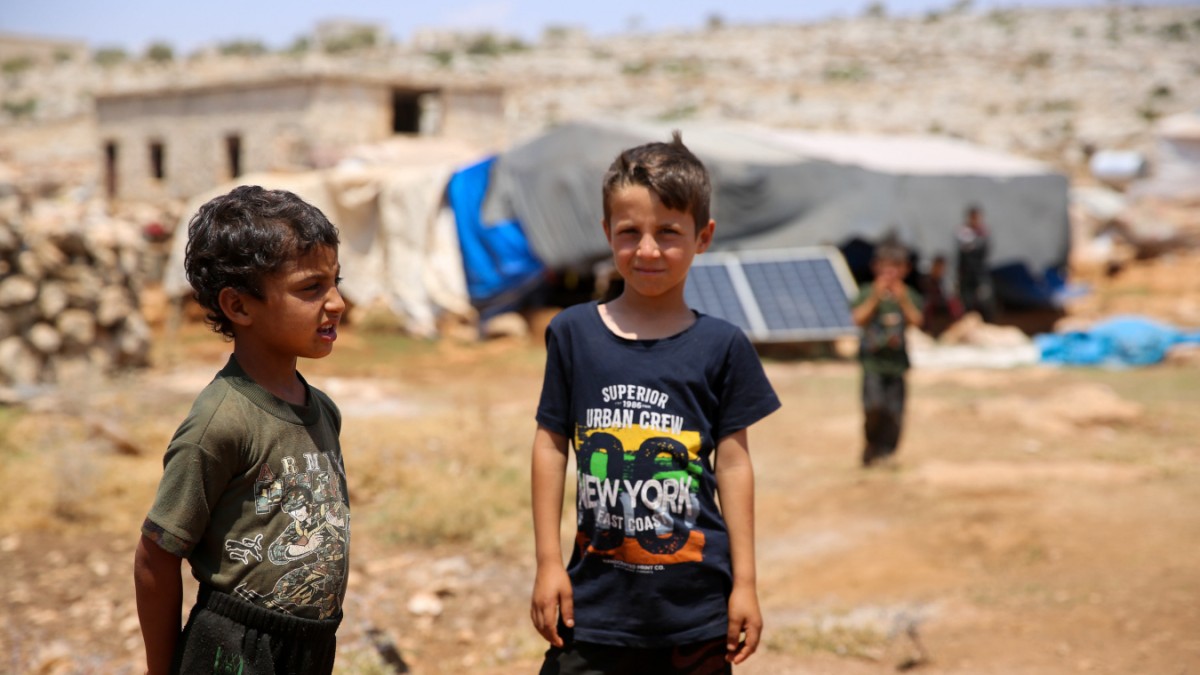About a thousand trucks a month. They are the lifeline for millions of Syrians in the north of the civil war country. The semi-trailers bring food and medicine, which 3.4 million people there depend on. The UN World Food Program, which alone supplies 1.4 million people with food, warned of a catastrophe if deliveries are not continued. The water supply also depends on it.
An alliance of 42 aid organizations fears that at least one million people would be threatened by acute famine. “Ending cross-border aid would mean a death sentence for millions of people who depend on humanitarian aid for their survival,” said Louis Charbonneau, United Nations director of Human Rights Watch in New York.
The trucks cross the border with Turkey, at the only crossing that is still open: Bab al-Hawa. This Saturday the mandate of the UN Security Council for cross-border deliveries expires. Russia, next to Iran the closest ally of the regime of President Bashar al-Assad, had already forced three other crossings from Jordan, Iraq and another to Turkey to close for aid deliveries with the participation of the United Nations by virtue of its veto power in the body were.
Foreign Minister Sergei Lavrov had indicated in a letter to UN Secretary General António Guterres that Moscow would also block an extension for Bab al-Hawa, arguing that the government could deliver aid via Syrian territory instead of across borders. But this, Lavrov put it, blocked the radical Islamic rebels of the Hayat Tahrir al-Sham group, who are also classified by the UN as a terrorist group, with the tolerance of Turkey.
Starving as a weapon
Much of the aid goes to Idlib Province and neighboring areas, the last contiguous region in Syria that is still controlled by opponents of the regime. Since the beginning of the civil war more than ten years ago, Assad has systematically blocked and hindered aid deliveries to rebel areas, and in some cases convoys were even bombed. Attempts by the regime to retake Idlib led to a military intervention by Turkey and ultimately to a fragile ceasefire that Ankara negotiated with Assad’s protective power, Russia.
Norway and Ireland recently proposed to the Security Council not only to extend the use of Bab al-Hawa, but also to reopen the al-Yarubiyah crossing to Iraq, which was closed in 2020. They justified this with the fact that demand in northeast Syria has risen by 40 percent since then, more than in any other area. There is already a lack of drugs and medical goods, also caused by the corona pandemic.
Russia rejected this as unacceptable, and China and India also had fundamental reservations. They insist on the principle of non-interference in internal affairs – and see this as being impaired by the aid deliveries because they are beyond the control of the Assad regime. The Security Council first approved cross-border aid in Syria in 2014 after Assad cut off supplies to rebel areas and used starvation as a weapon in the conflict.
A last-minute compromise on Bab al-Hawa was nevertheless considered possible by Western diplomats. Russia’s ambassador to Washington, Anatoly Antonov, made a similar statement. “Let’s give our teams a chance to deal with the issue,” he told Bloomberg TV, “and I’m sure they will find a compromise.”
US President Joe Biden raised the issue at his summit meeting with Russian President Vladimir Putin in Geneva in mid-June. While the Kremlin chief made no promises, Biden’s security adviser Jake Sullivan said he believed there was “scope for the US and Russia to work together for a positive outcome.” Bilateral talks then continued.
It was unclear what Russia and ultimately its protégé Assad would receive in return if an agreement were actually reached by the deadline.
Things “outside of the resolution” are also conceivable, according to diplomats. Russia has long been a thorn in the side of the small US presence in northern Syria. It ensures the Syrian Democratic Forces, allied with Washington, under the leadership of the Kurdish militia YPG, control over oil fields, which are insignificant on an international scale, but not for supplying Syria.
Russia also wants systematic reconstruction in Syria, financed by the international community – but only western countries and the Sunni Gulf states have the money. The West ties this to progress towards a political solution to the conflict, which Assad is blocking. A middle way would be to repair parts of the infrastructure.
.
Kingston is an accomplished author and journalist, known for his in-depth and engaging writing on sports. He currently works as a writer at 247 News Agency, where he has established himself as a respected voice in the sports industry.












